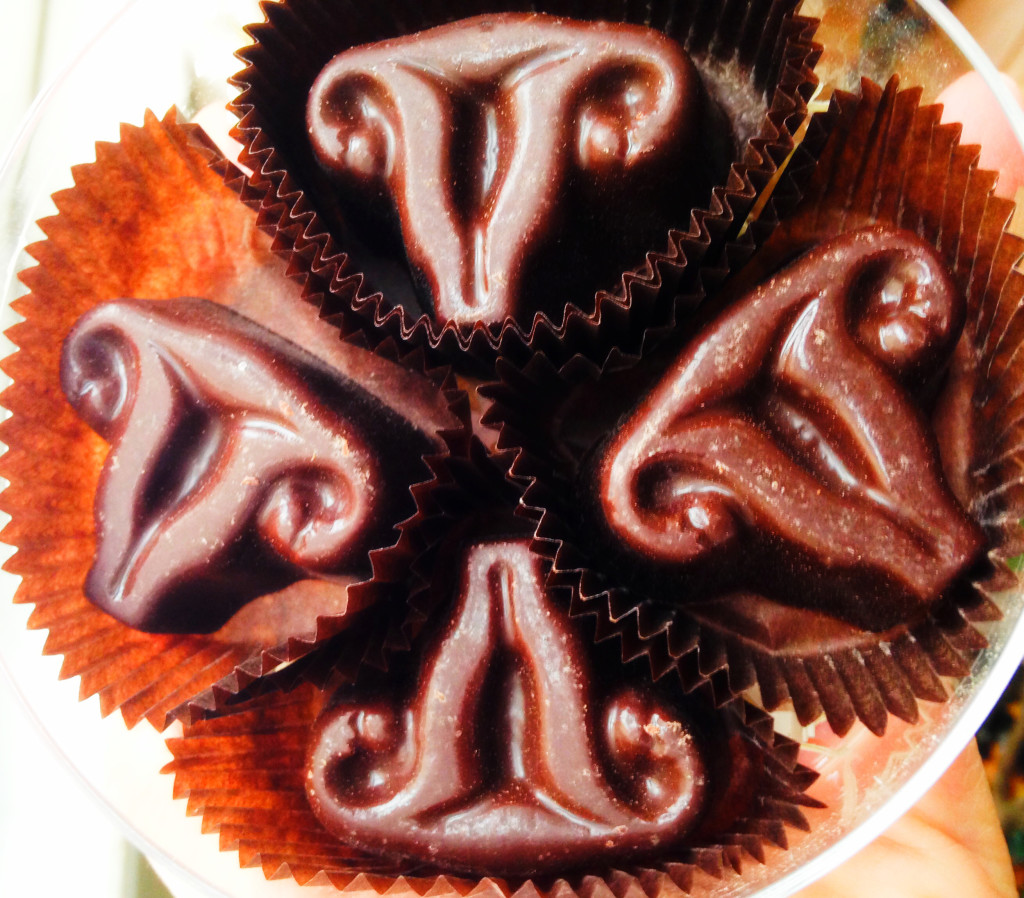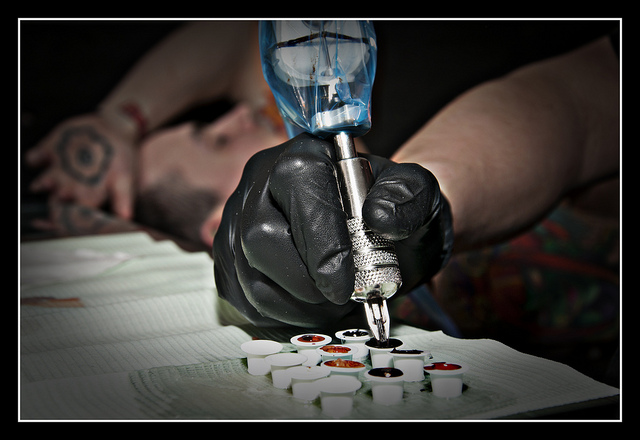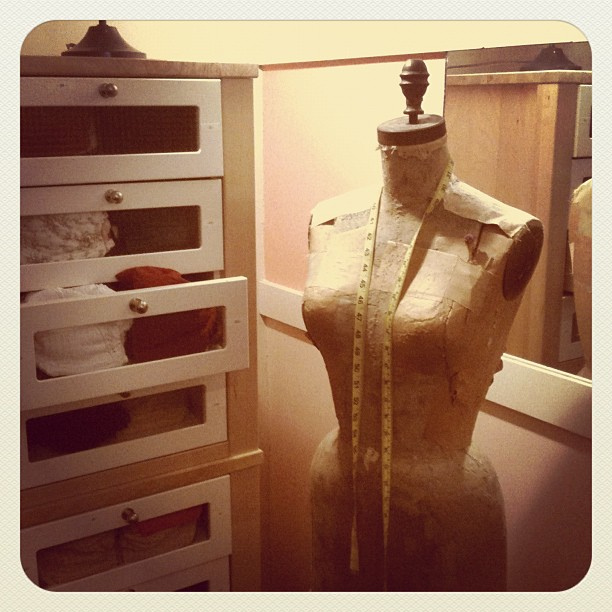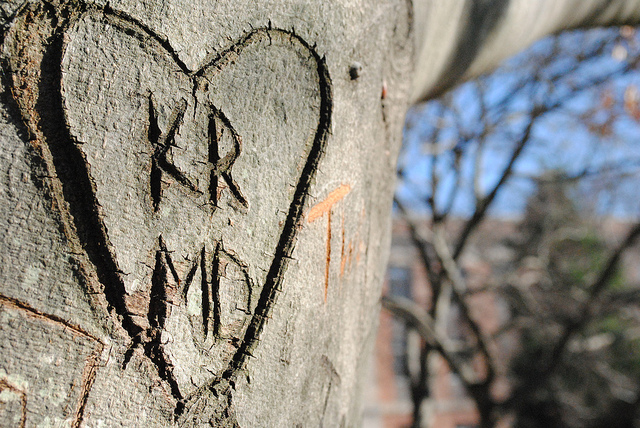By Zsofi McMullin
When I was in sixth or seventh grade, I got a D in geography. Or maybe it was even worse—an F. I don’t remember. I do remember that when I got home and told my parents, they were not happy with me. I remember feeling misunderstood and lonely and so helpless and mad—the way only a teenage girl can. Life was so unfair. What did my parents understand about me, about school, about the world? And who cares about stupid geography anyway?
My purple boom box—double tapes!—was on a shelf right next to my desk where I was sent to do my homework. I knew exactly what would help me feel better: I popped in the tape from my favorite band, Modern Talking, and put on my headphones. I turned up the volume to full blast on my favorite song, “Cheri Cheri Lady,” and not caring who heard it, sang along as loud as I could.
It didn’t take long for my mom to burst into my room and yank the headphones from my head. I even remember what she yelled: “Cheri Cheri Lady, huh? I’ll show you Cheri Cheri Lady!” And with that she took my headphones, my boom box, and all of my tapes.
•••
This was all before Instagram and Facebook and iTunes. Just finding a picture of the band’s two members, Thomas and Dieter, was an almost impossible mission—especially because I grew up in Hungary, behind the Iron Curtain, and they were a band from the former West Germany. Whenever a family member or a friend would travel abroad— which wasn’t that often back then—their mission was the same: passing through the Frankfurt airport, they had to pick up the latest issues of Bravo, a German music magazine.
If I was very lucky, the timing was just right and that particular issue would include an article about the band, with pictures to boot. I did hit the jackpot once— a multi-page spread with photos of Thomas’s bedroom. I didn’t even know back then why that was so titillating, but I spent hours with the magazine and a German-Hungarian dictionary. My grandmother—god bless her—sat with me for entire afternoons, pouring over the pictures, analyzing every detail, every lock of hair around Thomas’s perfect face.
Thanks to more sleuthing work and help from my parents, I had a few posters in my room: the one where Dieter is wearing a pink jumpsuit and the one where Thomas is wearing a white tee-shirt and jeans, leaning against a wall, something about his slim hips tantalizingly manly, yet feminine too, and all kinds of confusing.
I think I must have been more attracted to Thomas because he seemed soft and non-threatening to whatever was happening to my budding sexuality. Despite—or maybe because of?—the pink jumpsuit and the blond mullet, Dieter was edgier somehow. He would be the guy who would grab your butt, but Thomas would sit in your frilly bedroom and read you poetry.
•••
I wasn’t allowed to go to their concert in Budapest. I don’t remember the reason why now—maybe my parents thought I was too young, or the tickets were too expensive. The sports arena where they performed was on the way to my grandmother’s house and we happened to visit her that evening. I later told my best friend that as we drove by the stadium, we somehow came upon Thomas’s car and I saw him get out into the rainy night. Though implausible, it felt possible, it felt like being close to someone you love was what really mattered, was close enough to the truth. If I was just right outside the stadium, sitting in concert traffic, I might as well have been right next to his car, to him.
•••
The tears start as soon as I hear the familiar beats.
I’m slightly buzzed and excited when the members of the band take to the stage. The bass thunders in my chest, the blue and gold and red lights circle the small auditorium. His initials, TA, blink on a giant screen—he now calls himself “The Gentleman of Music.” I’m just seven rows back, with a perfect view of center stage.
Of him.
And then there he is. In a black, sparkly jacket, short, graying hair, tight pants, great shoes. I am always a sucker for a man in nice shoes.
And here I am, sobbing in row G. My husband holds my hand because he can feel my shoulders shake from crying and it takes me an entire song to recover. Only then am I able to let the music take me, to let myself relax and dance and sing at the top of my lungs the words I know so well.
•••
I’m not sure at what age exactly Thomas stopped being my imaginary dream boyfriend. When did I stop feeling that he sang his songs just for me? When did I stop believing that he was looking directly at me from the poster above my bed?
It is so easy to discard and replace a first crush. When you are young, there’s so much life still to come, and in the whiplash of time you forget how important these passions are to your survival, to your understanding of yourself. Fads come and go, your tastes change. But what you don’t know yet is that you yourself don’t really change at all.
I returned to Thomas and his music slowly over the years, as life happened, as it became crucial to have something to hold on to from the past, something that felt like home, like an anchor, a reminder of who I was and where I’ve come from. It’s funny how that happens, how everything you tried to run away from as a child is suddenly filled with meaning and memories as you age. How what you thought was disposable turns out to be an inseparable part of you. It might be buried and dusty, but it’s there.
•••
Access is easy now—his music is on iTunes, his pictures all over Facebook and Instagram. I almost pity the youth who don’t know what it’s like to hunt for an image of their idol in a print magazine.
A few times I sit with my son and we watch some of Thomas’s more recent solo videos on YouTube, especially the one where he plays a James Bond-like spy. The tune is catchy, of course, and he is dashing in a tuxedo and Sam enjoys the sharp ping of bullets ricocheting off the glass walls in one scene.
“Did you scream like a crazy person when you saw him?” Sam asks when I tell him about the concert.
“I did, a little bit, yes,” I answer.
•••
As a teenager just learning English, I was so eager to decipher each song, to understand the lyrics and their meaning. Because clearly, they were about me, and I had to know the secret they were revealing. Now, as his lyrics flash across the screen behind him, I am horrified to find that I have been mishearing certain lines for the past two-and-a-half decades.
•••
Between songs he tells us that he’s been on stage for forty-eight years, since he was six. It strikes me that there’s only thirteen years between us, which, in the grand scheme of things, is not that big of a difference. It’s been at least twenty-seven years since the height of my crush—a lifetime, it seems. My grandmother is dead, the apartment that held my posters and stash of music magazines is a yoga studio, West Germany doesn’t exist anymore, and the stadium in Budapest has been demolished and rebuilt. I have loved and lost and married and given birth and moved and traveled and live in an entirely different country from where I grew up.
But when I look in the mirror, I still see me—the teenage me. In my eyes, I have not changed. But looking at him on the stage, I recognize the signs of aging in both of us: the graying hair, the double chin that’s there if you hold your head at the wrong angle, the body’s thickening outline.
I wonder what he sees as he looks into the auditorium, at us. What does it feel like for him to have watched his audience grow older, to have provided the soundtrack to so many lives, and to have been the marker for so many of when childhood ended and real life began? What has he been through? Has he lost parents or lovers? Does he struggle with parenting? Do his knees hurt after jumping around on stage? Is life on the road weary and lonely? Or does he find comfort in the anonymous silence of hotel rooms? Who provides his soundtrack?
•••
There’s no way to return to being that little girl who rocked out to bubbly pop songs when life was hard and who believed that a handsome man could be the answer to all of life’s problems. There’s no way to bring back prepubescent hips or my childhood bedroom or afternoons with my grandmother. Those things are gone.
But on this night, in the sweaty darkness, the thump-thump of the music takes me back and I feel the familiar sweet achiness of my teenage heart. I still find myself drawn to Thomas’ dark eyes—wrinkles and all—and the next day when I’m sore from dancing and have no voice from screaming, I hope his knees and his voice are all right—and that the music will keep on playing, for both of us.
•••
ZSOFI MCMULLIN is a regular contributor to Full Grown People and has published essays in several online and print outlets. She lives in Maine with her husband and son and on long road trips they too sing along to “Cheri Cheri Lady.” You can read her other works at zsofiwrites.com or follow her on Twitter: @zsofimcmullin

 Follow
Follow








